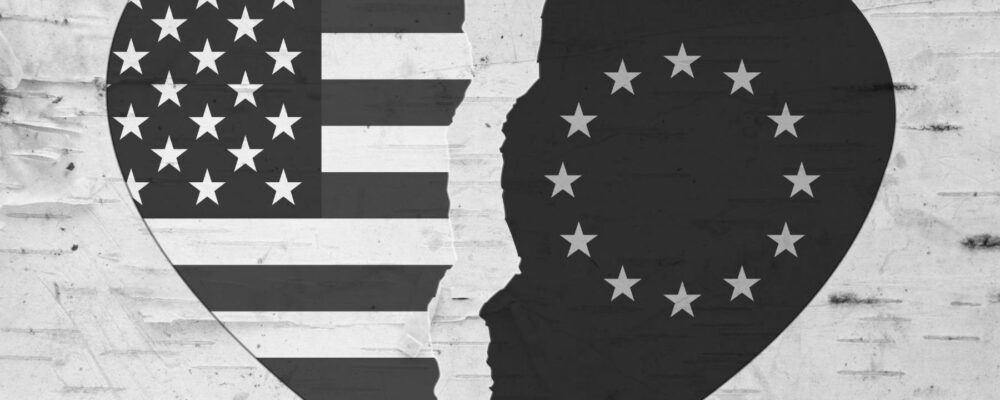
In December 2022, the world watched in awe as Argentina’s Lionel Messi and France’s Kylian Mbappé lit up the World Cup final. Playing at a top international tournament for their national team is the pinnacle of any footballer’s career. But what happens when they returned to their club, where their teammates are often their rivals on the international stage? Can team members who compete in another context resume their initial levels of collaboration?
Diminished collaboration
For Messi and Mbappé, their rivalry in the World Cup might well have caused them to struggle to connect on the pitch when they returned to their club, Paris Saint-German. This conclusion is based on our study (conditionally accepted by Strategic Management Journal) which analysed player performances in top European leagues and the 2018 World Cup. Specifically, we examined whether clubmates who compete against each other on the international stage collaborate with each other equally well when they return to their day job.
The results were clear: Players who faced off at the World Cup passed the ball to one another 11 percent less when playing for their club the following season.
Taking this idea further, we studied situations where team players knew in advance that they might play against each other in upcoming international matches. Interestingly, we found these players collaborated less with their ‘future opponent’ even before the tournament had started.
This effect varied with the strength of national identity held or expressed by the players. It was less pronounced among players with dual citizenship and more pronounced for those who actively promote their national team on social media.
Our analysis also showed that players who competed against club mates at the international level were more likely to leave their club in the season after a tournament. Interestingly these players also experienced a decline in their market value.
Unconscious friction
While it’s challenging to pinpoint the exact reasons for this decrease in collaboration, we surmise the added sense of competition strains relationships among club teammates. If players know that they are going to compete head-on to win what is arguably the highest prize in their profession, it’s bound to have an effect on their personal relationship with colleagues.
Football is a team sport and it’s all about the understanding between players. If a player is less inclined to talk to a teammate in the dressing room because they will be playing against each other soon, this weakens that understanding. If a player’s relationship in the dressing room is damaged due to the added sense of competition, then it makes sense that this will also impact their teamwork on the pitch.
Competition in the workplace
To better understand the phenomenon in the business world, we looked at S&P 500 companies and examined how often two members of the same executive team are also board members of other organisations that are in competition.
The result was a significant 20 percent. That might seem surprising but is less unlikely than it might first appear. Take for example high-ranking executives occupying C-suite positions at a major national retailer. Chances are that they would have knowledge and skills that are relevant to different logistics companies. There is therefore a good chance that one executive might be approached by FedEx and one by UPS.
Competing loyalties
When executives from the same company sit on different competing boards, it’s likely that their loyalties will be divided. This might not be overt, but like the football example, the awareness of being on different sides in certain circumstances can make individuals less inclined to collaborate quite as fully or be quite as open with a potential rival.
Misaligned affiliation can happen in many areas, from politics to sport. Knowing that your colleague votes for an opposing political party or supports a rival sports team could impact your relationship with them. You may not flat out refuse to work with them, but you might subconsciously be less willing to ask for their advice or get their help with a work-related challenge.
These results are counterintuitive to the prevailing research on networking in the workplace. The common view is that such extra-organisational affiliations have a positive impact on the individual and the firm and should be encouraged by leaders. Our findings suggest that they have the potential to create conflict.
Tackling the problem
Ask any football club how to fix this issue and the answer is simple: Don’t allow your players to play for their country – a desire many clubs already express. While this is not yet feasible in football, managers in the business setting have more agency on employees’ external connections.
A CEO can try to avoid this potential issue by not giving executives free reign to establish new affiliations – not because of rivalry between companies, but because of the potential conflict between employees.
Of course, this can be difficult to implement in practice. Take the example of Basecamp, a seemingly liberal and progressive US-based software company. In 2021, co-founder and CEO Jason Fried surprised everyone by announcing a ban on discussing social and political issues on the company’s internal platforms.
Fried argued that the political climate at the time was so fraught and polarising that such discussions would negatively impact the company’s productivity and employees’ ability to collaborate. Perhaps not surprisingly, there was a huge outcry both within and outside the firm against the ban. Many staff chose to quit but in the end, Basecamp stuck to its decision.
While the Basecamp approach is extreme, attempts at setting boundaries on workplace conversations is a valid solution. A more measured approach could be to address these issues more directly. A CEO, for example, could frame the situation of C-suite colleagues occupying similar roles on opposing boards as a shared experience that could foster greater collaboration.
At the very least, being aware of the potential issue, either in the boardroom or changing room, is an important first step. One that could be followed up by active measures to ensure that collaboration and teamwork don’t suffer as a result.
“INSEAD, a contraction of “Institut Européen d’Administration des Affaires” is a non-profit graduate-only business school that maintains campuses in Europe, Asia, the Middle East, and North America.”
Please visit the firm link to site





